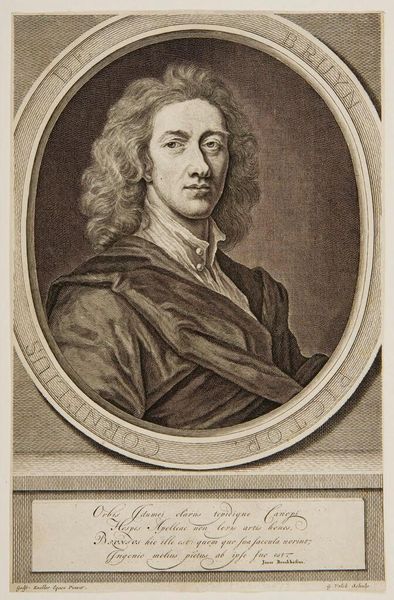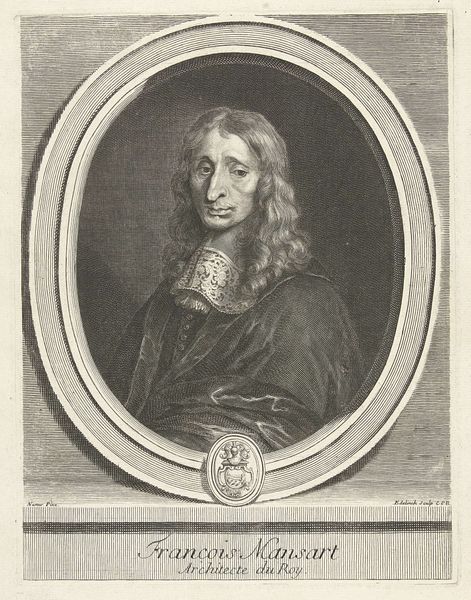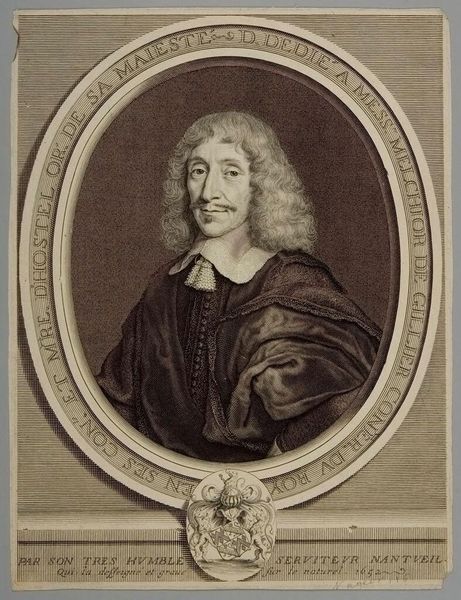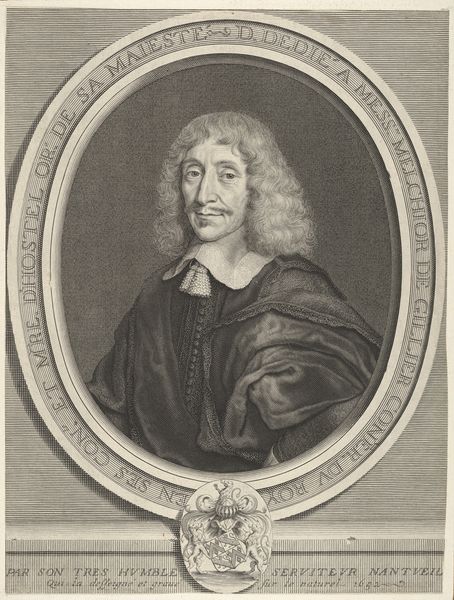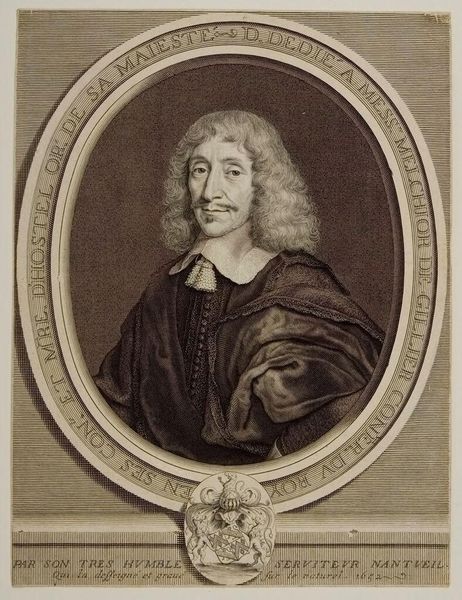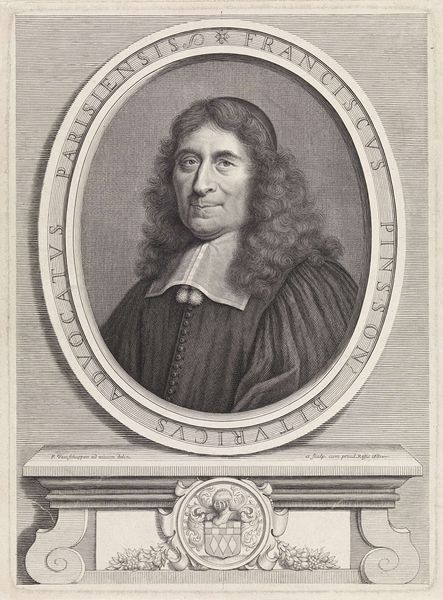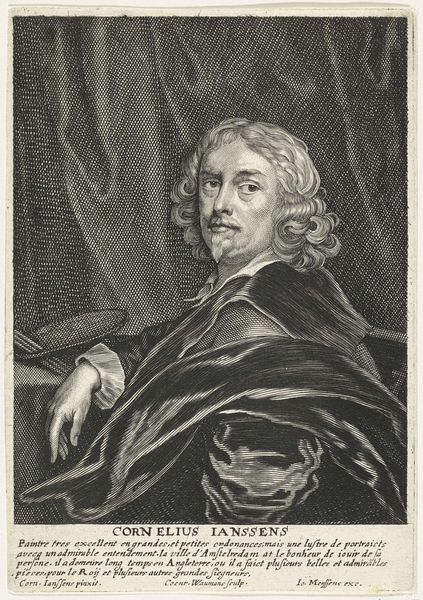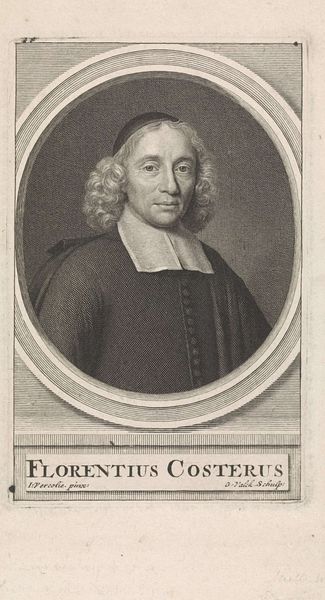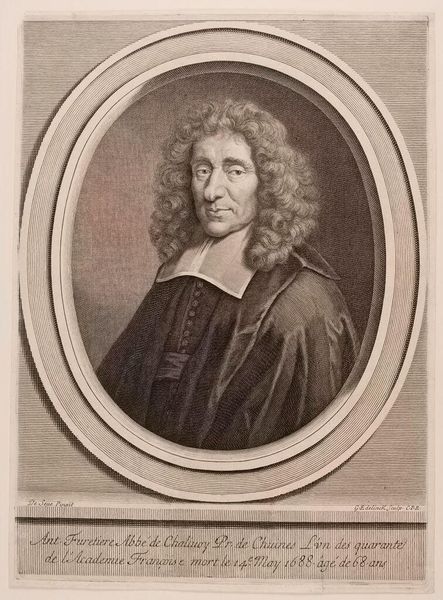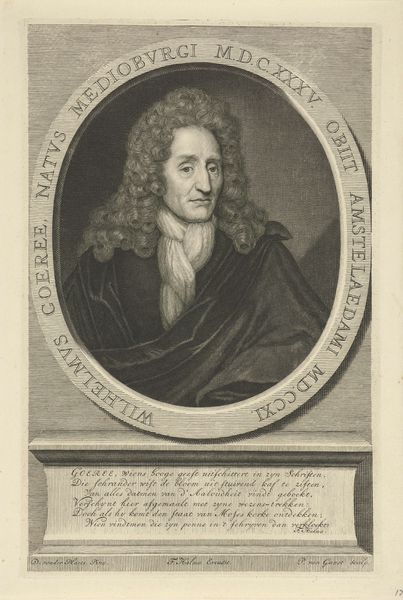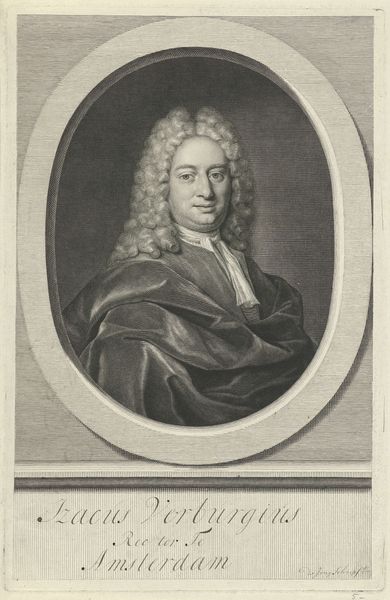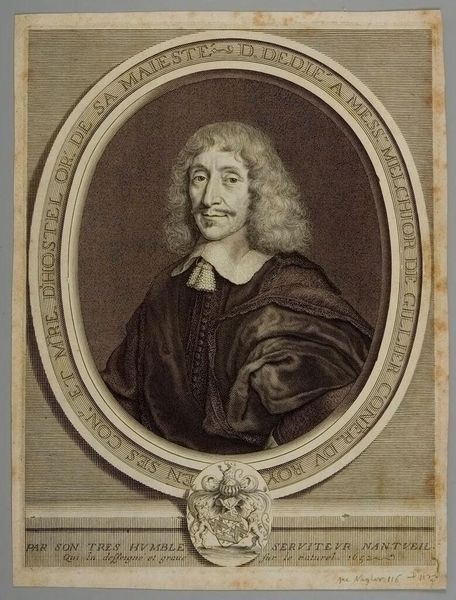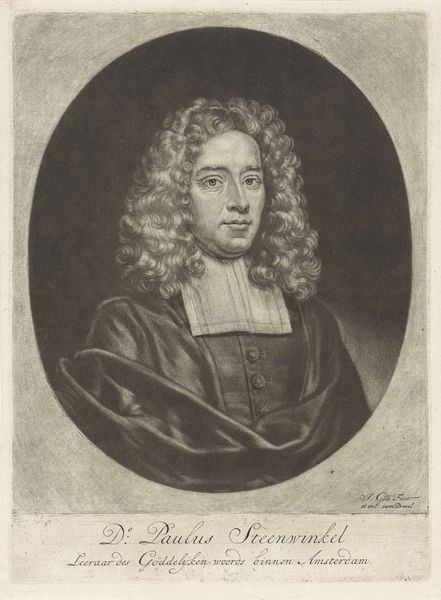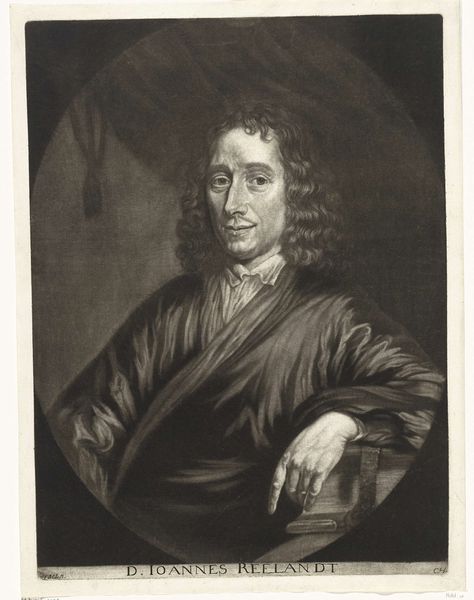
engraving
#
portrait
#
baroque
#
dutch-golden-age
#
old engraving style
#
historical photography
#
portrait reference
#
line
#
engraving
Dimensions: height 275 mm, width 179 mm
Copyright: Rijks Museum: Open Domain
This is Gerard Valck's portrait of the painter Cornelis de Bruyn, likely made sometime around 1700. It's an engraving, a printmaking technique that involves cutting lines into a metal plate, inking it, and then pressing it onto paper. The magic of engraving lies in its capacity for detail. Look closely, and you’ll see the textures Valck has created – the flowing curls of De Bruyn’s hair, the soft folds of his clothing, and the subtle gradations of light and shadow on his face. Each of these effects was built up painstakingly, line by line. This wasn't just a reproductive medium; it was a craft in its own right, demanding immense skill and patience. Engravings like this played a crucial role in the circulation of images. They brought art to a wider audience at a time before photography, connecting artists and patrons across geographical boundaries. The labor involved in creating this engraving, with its precise and deliberate marks, speaks to the value placed on craftsmanship. Appreciating the artistry of the engraving, the making process, allows us to understand its historical and cultural impact.
Comments
No comments
Be the first to comment and join the conversation on the ultimate creative platform.
